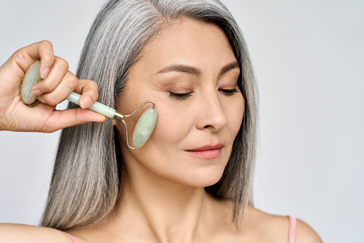Raw VS Cooked, Which Contains More Vitamins and Minerals?
Posted by Support CoBionic on
Welcome back everybody. It is Becky Williams. I'm back with another bonus video and this week we're going back to the subject of food and I'm going to talk about Raw versus Cooked.
So this is something that I do see a lot of controversy on. Which thing is going to be more nutritious? Which one has more minerals in it? Which one has more vitamins? And in the grand scheme of things, look, if you're eating vegetables in general, I'm so happy. But let's just go ahead and settle it because it is something that has come up.
So where it can be a consideration, where do you even care about this is if there's a vitamin or mineral deficiency. There we go. Tongue tied today. So let's perhaps say that you do have some kind of deficiency and you're wanting to add in more vitamins, more minerals, that kind of thing. It is important to know, is raw versus cooked going to be better for you? So I'm going to tell you the simple answer, that there isn't a simple answer. There's not a time where I can say raw is always better. Cooked is always better. It's just not possible because everybody is different. Your absorption rates are going to be different. Some vegetables and fruits are going to be easier to absorb. Raw and then some will be easier to absorb cooked.
If you're a woman, it could have different times of the month based on your cycle could be changing. There's just lots of different things that go into consideration with us. So that I can't just tell you one over the other, but let me give you some information about them. So you can maybe make a more informed decision whenever you do need to choose between raw or cooked.
So as a general rule, water soluble nutrients, which would be like vitamin C, B vitamins, these are mostly found in fruits and vegetables, and they're best to be eaten raw, in general. The reason is twofold. First, when nutrients are heated, they tend to degrade. This can be from any heat. It could be from boiling, steaming, roasting, frying, whatever. So vitamin B and vitamin C are a bit more delicate and susceptible to heat than other nutrients. Of course, the obvious way to combat the nutrients losses, is to eat foods that are high in vitamin C in a raw form. Like think salad, right? Or cook them for as short a time as possible, like real quick steaming.
A fun fact is that raw spinach can actually contain three times the amount of vitamin C as cooked spinach. So that's pretty cool. The second reason why foods high in vitamin C and vitamin B are best eaten raw is that they're water soluble. So guess where the vitamins go when they're cooked in water, right? They're going to be dissolved right into the water. And it's particularly true for fruits and vegetables that are boiled or poached, but even for foods that are steamed as well. But if you're a savvy health nut, you'll probably keep that fluid, keep that liquid, put it in your next soup or your sauce to preserve those nutrients. So if you do cook them, you can still reuse that liquid.
How much loss are we talking about here when something is cooked or steamed or whatever? It's going to range, but it could be from 15% all the way up to 50%. So that is a really big loss of nutrients based on what the fruit is and your method of cooking. So in short, water soluble vitamins like vitamin C and all of the B vitamins will degrade with heat and some of what's left over after they're heated will dissolve in the water. Okay, so keep your fruits and veggies raw as much as possible, if they have these vitamins.
Let's talk about soaking nuts and seeds. So I know that, um, like if you're going to make something like almond milk or whatever, you can soak your seeds and be able to blend those up. But let's talk about if you need to do that or not. All right. Yes, it is beneficial to soak them. So soaking nuts and seeds for several hours at room temperature, allow some of the minerals to be unlocked, so to say, from their chemical structure so that they are more absorbable. Foods, to eat that, that can be cooked foods that would be good to be cooked. Cooking certain orange and red, a beta carotene rich vegetables, think tomatoes, carrots, sweet potatoes, things like that. They can help the pre-made vitamin A become more absorbable. So that's a good thing. So in this case, you would want them to be cooked.
Here's a fun fact for this. One study showed that absorption of beta carotene was 6.5 times greater in stir fried carrots than in raw carrots. So that's pretty cool. So of course eating fat soluble vitamins with a little bit of fat will help you to absorb them more, which is why this is also another factor to consider. So when we say to cook with ghee or with coconut oil, it can help you with those fat soluble vitamins.
So there is one vegetable that is really good, whether it's raw or it's cooked, and that is spinach. So I'm not saying everyone is going to enjoy spinach or love spinach. If you're allergic to it, obviously don't cook it either way or eat it raw at all, right? Spinach does contain several beneficial compounds that can be eaten raw or cooked. Eating raw spinach preserves the water-soluble vitamins. We've talked about vitamin C, all the B vitamins. Eating spinach cooked allows the pre-vitamin A, as well as other minerals like iron, that kind of thing, to be better absorbed. Also, not to mention how much spinach you can cook to be reduced in size. I don't know if you're like me, but the very first time that I cooked spinach, I was like, man, this is way too much. The recipe, whatever it was, is way too much. There's no way this is going to work. It was like a mound in the pan, right? When I was done, I had this little tiny bit of spinach that was left. I don't know if you've experienced that or not, but it is pretty cool to see whenever it's raw and then you cook it, how much the size changes.
In conclusion, there is no right way. It all depends on which vegetable or fruit that you're looking at. Some are going to be better to be cooked and then some are better raw.
I think it's only proper that I leave you with a recipe. Today, I'm going to talk about Cooked Spinach or Sauteed Spinach. Remember, we talked about the fat-soluble vitamins.
- 2 teaspoons of olive oil
- 2 cloves of garlic
- 1 bag baby spinach leaves
- dash of salt
- dash of pepper
- some fresh lemon
- In a large pot, heat up your oil, add your garlic, saute it.
- Add your spinach, your salt, your pepper, toss it with the garlic and the onions and the oils.
- Then after you've done that, cook it a little bit. Start until everything is wilted.
- You can put lemon juice on top if you'd like. So everything is done.
Here's a tip. Enjoying the cooked spinach with the vitamin C in the raw lemon juice helps your body absorb more of the iron.
So there you go. You've found all different ways to be able to absorb these different things into your body. Hopefully, this helps you to make a decision on the next time that you are deciding between eating a salad or a stir fry. I'll talk to you again next week. Bye.





